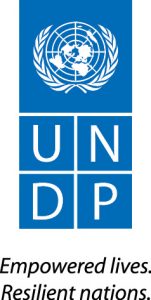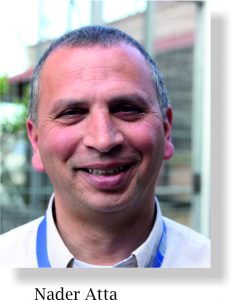 Sports stories can only contribute to individual and national development. It is for this reason that we are keen to share our personal experiences and current work with the Palestine Olympic Committee, Al-Quds University, and Al-Aqsa University, as well as with the Ministry of Education in transforming the way Palestine approaches sports.
Sports stories can only contribute to individual and national development. It is for this reason that we are keen to share our personal experiences and current work with the Palestine Olympic Committee, Al-Quds University, and Al-Aqsa University, as well as with the Ministry of Education in transforming the way Palestine approaches sports.
When I was five years old, I played organized soccer in Reston, Virginia, for the first time. It was the last game of the season, and I scored the first goal of my life. I went on to score a second goal during the same game and vividly remember how excited I was after scoring – running, jumping, and experiencing my teammates swarming around me to congratulate me. It was even nicer that my mom was there to see my accomplishment and cheer me on. For the next 12 years, I played organized soccer with what are called house (community) leagues, select soccer leagues, and at my high school. Throughout those years, my mom and siblings as well as other families of players on my team would come and watch the games from the sidelines, screaming encouragement to their children. I can happily say that I was a pretty good player at the time. I can also say that it was a contributing factor in molding my personality. Sports makes you feel good and keeps you healthy.
In addition to playing soccer, there was not a sport I didn’t play on the blacktops, fields, or in the backyards of my friends’ homes. Almost every day I would play pickup basketball games with older players in my neighborhood, most of whom were taller than I. I would also play baseball games where I loved to pitch and come to bat, however, I avoided the outfield where I had a hard time catching those high fly balls. I also loved American football, and I would play various positions with intensity against other neighborhood teams. We were always the dominant team, and I loved to tackle hard. Moreover, in the wintertime, we would go to pour water onto our neighbor’s concrete patio and play hockey games on the slippery ice. Throughout, my younger brother was with me – at first watching then playing with the big boys. This year, my brother, a Palestinian, will be inducted into his university’s Sports Hall of Fame for his outstanding contributions on and off the field.
For me, playing sports was and remains a way of life. A way to use my energies in a positive way. A way to meet new friends. A way to learn new skills and work as part of a team. Yes, there was the thrill of victory but also the agony of defeat. But from defeat we learned to improve ourselves. We learned never to give up, as tomorrow was another day. Sports enhances your skills.
Playing games was only one part of it. Watching with the family was just as exciting. As a child, I remember spending our Sundays with my uncles, who were born and raised in Al-Bireh, watching our beloved Washington Redskins play against those much-hated Dallas Cowboys. For persons not born in the States, not growing up knowing what American football was, they were even more fervent fans than the average American. Even today, watching Barcelona and Real Madrid as a family and with friends is better than going to the movies. Watching games on TV was one thing but going to the coliseums and stadiums with your family to watch games was a different world. No matter if you were male or female, young or old, or if you were there in the freezing cold, sitting in the nosebleed seats, or surrounded by fans of the opposing team, the atmosphere was electric, exciting, and energizing. Sports was a ritual, a family event, a unifying event.
Nader Atta
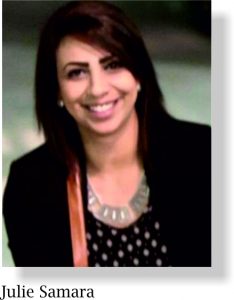 That being said, for those who grow up in a conflict situation like that in Palestine, frustration and social limitations abound, especially for women. Sports can be a safe space for females to foster freedom: both physical and mental. This fact cannot be more relevant to me these days as I think back on my life and my relationship with sports. As a child and teenager, I was very active. In school, I was a gymnast, and in my village of Jifna, I played basketball and loved it with passion. I looked forward every week to attending my gymnastics class in school. As I grew up, however, playing sports became less and less possible for me as social circles frowned upon female participation in sports. I felt very sad when I saw young men playing what was off-limits to me, even though I was fully capable. How unfair, I thought.
That being said, for those who grow up in a conflict situation like that in Palestine, frustration and social limitations abound, especially for women. Sports can be a safe space for females to foster freedom: both physical and mental. This fact cannot be more relevant to me these days as I think back on my life and my relationship with sports. As a child and teenager, I was very active. In school, I was a gymnast, and in my village of Jifna, I played basketball and loved it with passion. I looked forward every week to attending my gymnastics class in school. As I grew up, however, playing sports became less and less possible for me as social circles frowned upon female participation in sports. I felt very sad when I saw young men playing what was off-limits to me, even though I was fully capable. How unfair, I thought.
This was further marred by the lack of female representation in sports and the lack of sports bodies that would support female athletes and give them the space to build their capacities and skills in sports. As I reflect on my life, I realize that this is the reason that I was held back from acquiring the discipline that sports fosters in the individual. These days, I am very proud and happy to see Palestinian women representing their teams, the country, and themselves in events as distinguished as the Olympics. These days, I find myself playing sports and striving to empower more women to engage in sports, not only as a space for entertainment and as part of a healthy lifestyle, but also as a space for mutual understanding and social networking. Thus, sports is not only for men.
Julie Samara
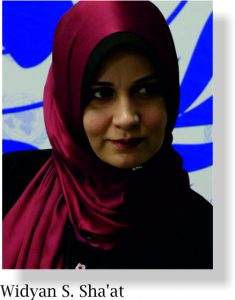 I grew up in Khan Younis and remember playing basketball when I was 12 years old. I was one of the team members in my school, but my father prevented me from playing because it was not acceptable for young ladies to play any kind of sports. Every time I watched a basketball tournament, I would wish to be part of it. As I got older, I would run on the beach in Gaza. The last time was three years ago. Since then, I have not practiced running or jogging in Gaza as I felt increasingly uncomfortable. When I lived in Malaysia, it was very different. There was a safe environment for women, especially as many wore Islamic sport garments and practiced all kinds of sports, from running to swimming. Only after I participated in a 1,000-meter race with my students there to watch did I truly have fun, experiencing a sense of healing and happiness that comes from participating in sports. This safe space also allowed my daughter to participate in track-and-field events in Malaysia where she won a gold medal in racing and a silver medal in the long jump. Sports provides a safe space for females.
I grew up in Khan Younis and remember playing basketball when I was 12 years old. I was one of the team members in my school, but my father prevented me from playing because it was not acceptable for young ladies to play any kind of sports. Every time I watched a basketball tournament, I would wish to be part of it. As I got older, I would run on the beach in Gaza. The last time was three years ago. Since then, I have not practiced running or jogging in Gaza as I felt increasingly uncomfortable. When I lived in Malaysia, it was very different. There was a safe environment for women, especially as many wore Islamic sport garments and practiced all kinds of sports, from running to swimming. Only after I participated in a 1,000-meter race with my students there to watch did I truly have fun, experiencing a sense of healing and happiness that comes from participating in sports. This safe space also allowed my daughter to participate in track-and-field events in Malaysia where she won a gold medal in racing and a silver medal in the long jump. Sports provides a safe space for females.
Widyan S. Sha’at
UNDP’s Programme of Assistance to the Palestinian People (UNDP/PAPP) is keen on learning from such stories and translating these experiences in order to propel sports to be a tool for socio-economic development in the State of Palestine. It is encouraging to see that youth are provided safe spaces in which to excel and utilize their positive energy; to see that the young, the old, and the disabled, male and female, have equal opportunities to participate, improve their skills, and live a healthy lifestyle. For this reason, UNDP/PAPP, with support from generous donors, has constructed a number of soccer fields, outdoor multi-purpose playgrounds, and indoor sports facilities, as well as stadiums throughout the Gaza Strip and West Bank, including East Jerusalem. Moreover, UNDP/PAPP understands that sports can be an economic stimulus to generate income. From concession stands to the production of sports equipment, to the designing and marketing of local sport-team apparel, to renting spaces, sports can be a lucrative investment for individuals and communities alike.
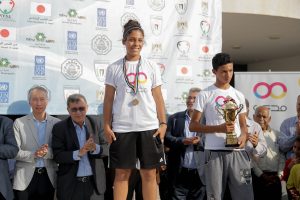
In addition, everything mentioned above feeds into the nucleus of what UNDP/PAPP and it partners – the Palestine Olympic Committee, Al-Quds and Al-Aqsa universities, and the Ministry of Education – are attempting to do through the implementation of the Palestinian Youth Sports League (PYSL) sustainable development plan. We want to create a structured grassroots community sports league that includes a number of team and individual sports. We want sports to be the driving force for unity. We want sports to be a family experience that over the long run will be a catalyst to fill our stadiums. We want sports to promote gender equality and be accessible to all, including persons with disabilities. We want sports to be a positive experience for Palestinian youth that promotes team building, positive behavioural change, learning, and skill development. We want sports to be a tool to increase the spirit of volunteerism. We want sports to be fun whether or not you are the victor. We want sports to be a means of generating income. We want communities at the local level to prioritize indoor and outdoor sports facilities. We want the PYSL to be the roots that sprout the State of Palestine’s future Olympic champion. A strong sports environment can only contribute to the State of Palestine’s overall development.
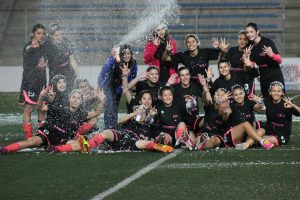
Let’s work together so that all Palestinian children, youth, and families can also tell a story about the time they participated in sports.
Born and raised by Palestinian parents in the United States, Nader Atta presently lives in Al-Bireh, Palestine. He has a BA in international relations from George Mason University and a master’s of technology in international development from North Carolina State University. Since 1995, Nader has been working with UNDP in various capacities. Currently, he is a Programme Design and Implementation Analyst and focal point for youth-related initiatives at the local and regional levels.
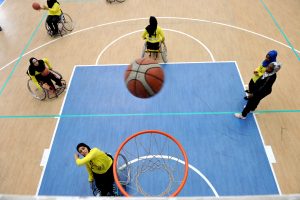
UNDP/PAPP.
Julie Samara is a project coordinator/manager at UNDP/PAPP. She has more than 10 years of experience in management and implementation of humanitarian and development programs with special focus on women and youth. She is a volunteer and human rights activist in various youth and women’s organizations. Julie holds a BA in English literature and translation and an MA in gender and development studies.
Widyan S. Sha’at, project coordinator at UNDP Gaza, is currently studying for a master’s degree in economic development. She holds a BA in computer science and education. Widyan is the chairwoman and founder of Ethar Youth Center and Children’s Library and is a humanitarian activist with extensive experience in project funding and implementation.

